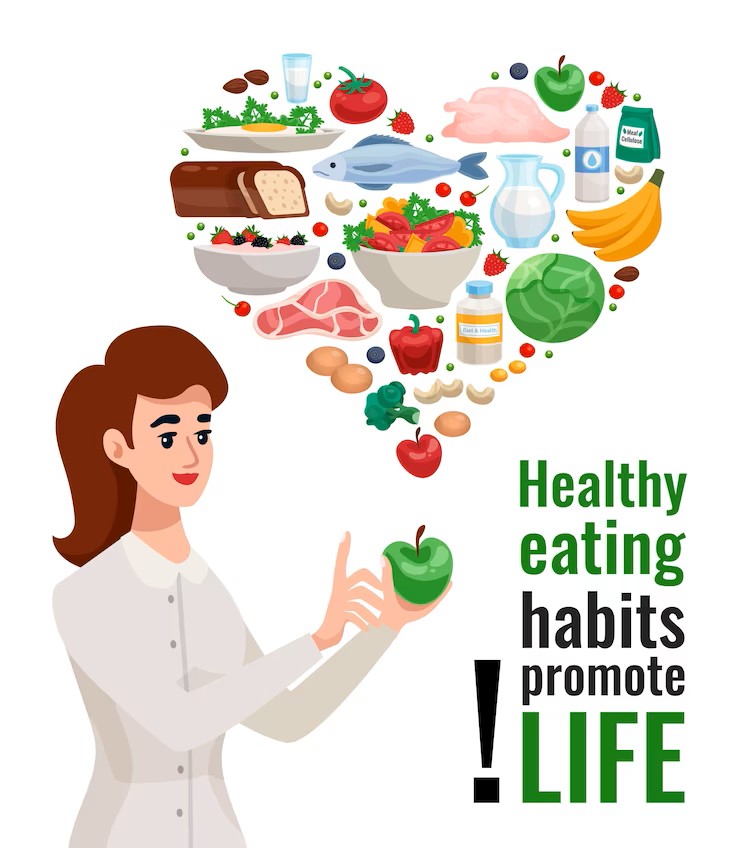Eating food is a major aspect of every culture irrespective of time. It has been an important part of ancient rituals and historic events. But often we do not acknowledge what we eat and as a result, we eat without keeping our body in mind. This, in turn, results in our body malfunctioning and making us sick. On the other hand, when we eat food that is good for our bodies, we tend to lead a healthy lifestyle. With the practice of mindful eating being instilled into our daily lives, we learn to eat better. Read on to understand the kinds of foods to be mindful of and how to build mindful eating habits.

Foods to Limit or Avoid for Better Mental Health
In addition to including nutrient-rich foods in your diet, it's also important to limit or avoid certain foods that can negatively impact mental health. Here are some foods to be mindful of:
- Processed foods: These foods are often high in unhealthy fats, sugar, and sodium, are typically low in nutrients, and have been shown to be associated with a higher risk of depression and anxiety.
- Sugar: Excess sugar consumption leads to fluctuations in blood sugar levels impacting mood and energy levels. Research has shown that diets high in sugar are associated with an increased risk of depression.
- Caffeine: While moderate caffeine consumption can have benefits, consuming too much caffeine can lead to feelings of anxiety and nervousness. It's important to be mindful of your caffeine intake. Avoid consuming caffeine later in the day, as it can interfere with sleep.
- Alcohol: Alcohol is a depressant that impacts mood. Moderate alcohol consumption is considered safe, but in large amounts abuse as a coping mechanism can lead to negative effects on mental health.
- Trans fats: They are unhealthy fats that can be found in processed foods, baked goods, and fried foods and studies have shown that trans fat-rich diets are associated with an increased risk of depression.
By limiting or avoiding such foods, you can support your mental health and reduce the risk of depression and anxiety.

Mindful Eating: Using Food as a Tool for Self-Care
Mindful eating is a practice that involves being fully present and engaged in the act of eating. It's a form of self-care that helps to improve our relationship with food and support our overall well-being. Here are some tips for practicing mindful eating:
- Eat without distractions: When we are distracted while eating, it leads to overeating and a lack of satisfaction. Try to eat in a quiet, calm environment, free from distractions like phones or TV.
- Tune into your senses: As you eat, focus on the sensory experience of the food. Notice the colors, smells, textures, and flavors, and pay attention to how the food makes you feel in your body.
- Eat slowly and savor each bite: Take your time with each bite, chewing slowly and thoroughly. This can help you to enjoy your food more fully and prevent overeating.
- Listen to your body: Eat when you're hungry and stop when you're satisfied, rather than eating until you're full to the brim. Pay attention to your body's hunger and fullness cues.
- Choose nutrient-rich foods: Eating a balanced diet can support overall well-being, which helps to prevent cravings and overeating. Focus on incorporating whole and unprocessed foods into your meals.
- Be kind to yourself: Remember that eating is an act of self-care. Be kind to yourself; avoid judging yourself for your food choices and aim to balance and moderate rather than perfect it.
By practicing mindful eating, we can use food as a tool for self-care and support our overall well-being. It takes practice and patience, but over time, mindful eating can become a natural and enjoyable part of daily routine.
Unable to eat mindfully or enjoy meals?
Talk to our experts now!
Through The Able Mind, we wish to encourage everyday conversations about mental health issues. We are just a click away for affordable counseling to help you handle issues - small or big - one day at a time. You can have a stigma and worry-free therapy experience without burning deep holes in your pockets.
We are here to provide mental health support for everyone who struggles with anxiety, depression, relationship issues, or anything that comes in the way of wholehearted happiness. We also help you manage your time, anger, or confidence at the tips of your fingers.
Do you wish to talk to someone about what’s on your mind?
We are right here!
Download our app on the Play Store or App Store.
Chat with our trained counselors who are here to support your growth!
#AlwaysAvailable #mentalhealthprofessionals